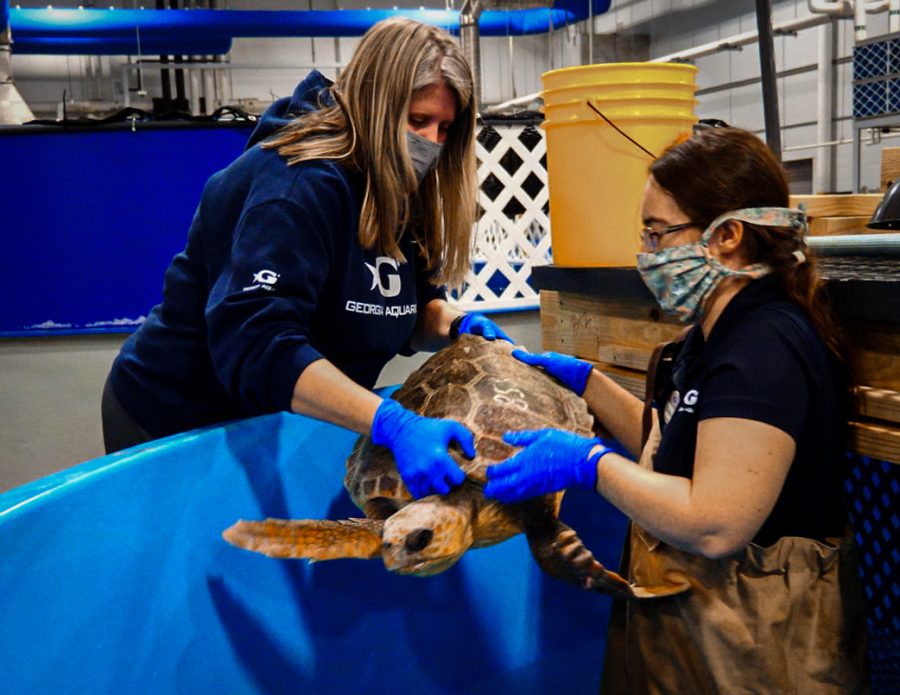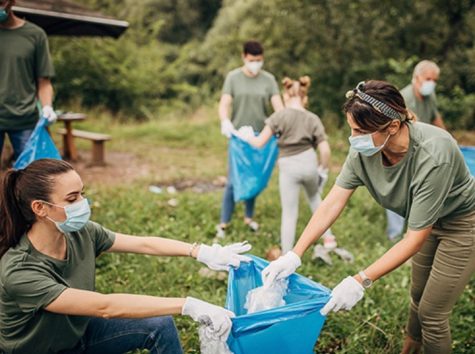Helping one turtle at a time
As temperatures in New England continue to drop, many reptiles are in need of urgent medical attention. For example, Loggerhead sea turtles have been affected, with eight of them having been transported to the Georgia Aquarium in hopes of curing their colds and escaping these conditions.
“I believe that this could be a really good effort in assisting the sea turtles. They are already an endangered species, and the cold temperatures in New England could have detrimental effects,” Kate Conner, junior, said.
Early January, the Nor’easter Cyclone in the Atlantic Ocean brought record numbers of snowfall to New England cities. As a result, many sea turtles in the area were forced to relocate due to them becoming cold-stunned, a condition also known as Hypothermic Stunning. This occurs when reptiles are exposed to freezing temperatures and shut down into a sleeping state where their body only uses basic functions for survival.
“When the weather drops and the temperature in the water drops along with it, the animals get caught up in these currents, so they experience almost like a frostbite event,” Doctor Adrinee Atikins said in a video.
In order to help cold-stunned sea turtles recover, the Georgia Aquarium will work to raise and regulate their body temperatures through the use of heating pads.
“Because of the decline of the sea turtle population, it is very important that facilities like The Georgia Aquarium are taking in these harmed sea turtles. This is not only important for the survival of the individual but also the species as a whole,” Ethan Pearson, senior, said.
As the team at the Georgia Aquarium continues to work to save the lives of the frostbitten reptiles, students can follow their recovery on the Georgia Aquarium’s Facebook and Instagram.

Hello! Howdy-do! My name is Mia Jacobs and I am one of your Co Editor-in-Chiefs this school year! I am super excited for the year and what is to come....











